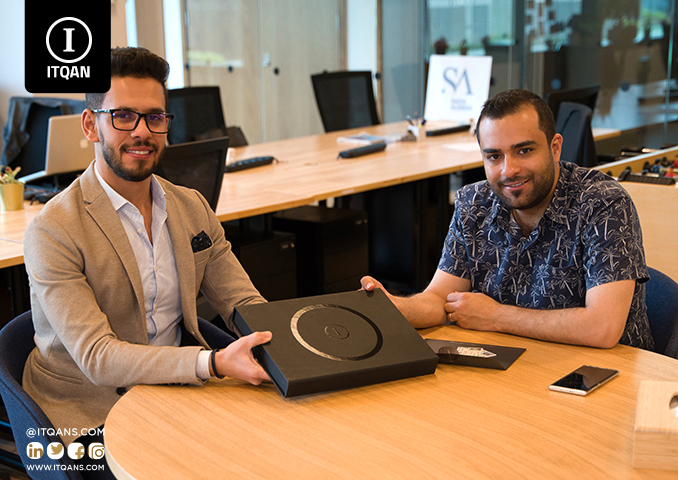Opening a commercial register in Dubai – Advantages and steps, Opening a commercial register in Dubai is a strategic step for any investor seeking to establish a successful business in one of the fastest growing markets in the world. Dubai is a global business hub that provides investors with access to a wide range of markets and investment opportunities. The business environment in Dubai offers many advantages, such as tax exemptions, a variety of options for registering companies, as well as a developed infrastructure that facilitates transportation and trade. Understanding the steps required to open a commercial register in Dubai can have a significant impact on the success of the project. The process usually begins with determining the type of business activity, where investors must make an informed decision based on market research and customer needs. Next, a comprehensive feasibility study should be conducted to help assess the financial and commercial viability of the project. Once the activity is determined, the step comes to choosing the appropriate legal form for the company, whether it is a limited liability company or a sole proprietorship, which affects the legal and financial aspects.
The process of opening a commercial register requires submitting a set of documents, such as a passport and a lease contract, in addition to completing legal procedures with the relevant authorities. Itqan is a strategic partner in this process, providing the necessary support to investors to facilitate the registration procedures and ensure compliance with all requirements. With the necessary expertise and knowledge, Itqan can contribute significantly to accelerating the process of opening a commercial register and ensuring the achievement of the desired goals in Dubai’s dynamic business environment.

Table of Contents
ToggleKey Features of Opening a Commercial Register in Dubai
Opening a commercial register in Dubai is an important strategic step for investors and entrepreneurs seeking to establish a successful project in one of the fastest growing markets in the world. Dubai enjoys a distinguished geographical location, advanced infrastructure, and government policies that encourage investment, making it a preferred destination for businesses. By registering a company in Dubai, investors obtain many advantages that contribute to enhancing the chances of success of their projects. The main advantages of opening a commercial register in Dubai:
- Tax Exemptions: Dubai has a flexible tax system, with no income tax on individuals or companies in most sectors. This means that profits made by companies can be reinvested in the business without being reduced by taxes.
- Easy access to global markets: Thanks to its strategic location between the East and the West, Dubai offers great opportunities for international trade, making it easier for companies to reach new markets and increase their customer base.
- Advanced infrastructure: Dubai has an integrated business environment that includes advanced transportation, international airports, and modern seaports, which facilitates the movement of goods and people.
- Diversity of legal options: Dubai offers a range of legal options for company registration, including limited liability companies and sole proprietorships, allowing investors to choose the one that best suits their needs.
- Stimulating business environment: The Dubai government offers a range of incentives to investors, including financial support programmes and facilitation of registration procedures, making it easier to start a business.
- Banking Facilities: Dubai offers an advanced banking system, making it easy for companies to open bank accounts and obtain the loans and financing needed to grow their business.
- Opportunities for cooperation and partnerships: Dubai’s business environment provides opportunities for cooperation with local and international companies, which enhances opportunities for growth and expansion.
In short, opening a commercial register in Dubai represents a unique opportunity for investors to take advantage of the many advantages offered by this dynamic city, which enhances the success of their business projects.

Basic steps to open a commercial register in Dubai
Opening a commercial register in Dubai is a vital step for investors seeking to establish successful businesses in an advanced commercial environment. This process requires following a set of basic steps to ensure compliance with legal requirements and achieve business objectives. With its strategic location and advanced infrastructure, Dubai facilitates the process of opening a commercial register, making it a preferred destination for capital. Here are the basic steps to open a commercial register in Dubai. Basic steps to open a commercial register in Dubai :
- Determine the type of business activity: Investors must first determine the type of activity they wish to engage in, whether commercial, industrial or service, as this decision affects the rest of the procedures.
- Conduct a feasibility study: It is important to conduct a comprehensive feasibility study to understand the market and competition, and estimate potential costs and returns, which helps in making informed decisions.
- Choosing a legal form: Investors must choose the appropriate legal form for their company, such as a limited liability company or a sole proprietorship, as this choice affects legal responsibilities and taxes.
- Submitting an application for initial approval: It usually requires submitting an application for initial approval from the Dubai Economic Department, where it is ensured that the business activity is in compliance with local laws.
- Preparing the required documents: Investors must prepare the necessary documents such as passport, lease contract, personal photos, and business plan, as these documents are necessary to complete the procedures.
- Company registration: After obtaining initial approval, the official application for company registration can be submitted, where the required fees are paid and the documents are submitted to the relevant authorities.
- Obtaining a commercial license: After completing all procedures and approvals, a commercial license is issued that allows the investor to start his activity legally.
- Opening a business bank account: Investors are required to open a business bank account in the name of the company, which facilitates the management of funds and financial transactions.
- Registration with the relevant authorities: After obtaining the license, you must register with the relevant authorities such as chambers of commerce and relevant local authorities.
By following these steps, investors can successfully establish their business in Dubai and benefit from the many advantages the city has to offer.
Learn about commercial registration in Dubai
In conclusion, when it comes to opening a commercial register in Dubai , it is clear that this step represents an important start towards achieving the commercial ambitions of investors. Dubai is an ideal environment for business, as it offers multiple advantages that make it a preferred destination for investment. From tax exemptions to advanced infrastructure, investors have great opportunities for growth and expansion.
Following the correct steps in the commercial registration opening process contributes to ensuring that the process runs smoothly and efficiently. From identifying the appropriate business activity, through conducting a comprehensive feasibility study, to choosing the appropriate legal form, each step is a vital element in building a strong foundation for the project.
Accurately submitting the required documents and complying with legal procedures facilitates the registration process, enabling investors to avoid potential obstacles. This is where the importance of working with Itqan comes into play, as it provides the expertise and support needed to facilitate these procedures. By utilizing Itqan’s services, investors can obtain accurate guidance and ensure compliance with all local requirements.
Upon completing the steps to open a commercial register, investors can start their project with confidence, benefiting from all the advantages that Dubai has to offer. This launch is not just the beginning of a business project, but rather a step towards achieving professional and financial goals in a market full of opportunities. Ultimately, opening a commercial register in Dubai represents the beginning of an exciting entrepreneurial journey that requires careful planning and perfect execution, ensuring success and prosperity in the business world.
Frequently asked questions about commercial registration in Dubai
What are the main advantages of opening a commercial register in Dubai?
Dubai offers multiple benefits such as tax exemptions, easy access to global markets, and advanced infrastructure that supports business.
What are the basic steps to open a commercial register in Dubai?
The steps start with identifying the business activity, then conducting a feasibility study, choosing the legal form, submitting the required documents, and finally obtaining the commercial license.
How do I identify the right business?
This can be done by studying the market, assessing customer needs, and searching for available investment opportunities.
What documents are required to open a commercial register?
Documents include passport, personal photos, office lease, application form, and business plan.
What is the best legal form to establish a company?
It depends on the nature of the business and the number of partners. Common options include limited liability companies and sole proprietorships.
Are there any fees associated with opening a commercial register in Dubai?
Yes, the fees include the cost of the license, registration fees, and any additional fees related to the required documents.














